Thesaurus : Doctrine

► Full Reference: E. Maclouf, "Entités industrielles et Obligation de compliance" ("Industrial Entities and Compliance Obligation"), in M.-A. Frison-Roche (ed.), L'Obligation de Compliance, Journal of Regulation & Compliance (JoRC) and Dalloz, "Régulations & Compliance" Serie, 2025, to be published
____
📕read a general presentation of the book, L'Obligation de Compliance, in which this article is published
____
► Summary of this article (done by the Journal of Regulation & Compliance - JoRC) : This article looks at the topic Industrial Entities and Compliance Obligation from the perspective of Management Science and sets out to resolve the paradox of industrial organisations expressing the ambition of progress for the benefit of people, a humanist ambition that is contradicted by the effects produced by this industrialisation itself, which are harmful to that same humanity. The Compliance Obligation, insofar as it is based on the Monumental Goals and is anchored in Industrial Organisations, aims to resolve this paradox.
The science of human organisations aims to allocate nature's scarce resources as efficiently as possible by getting individuals to cooperate, this engineering producing natural, industrial and social disasters, which are themselves more or less anticipated. The Compliance Obligation holds out the hope of better preventing them (Negative Monumental Goal) and managing them, or even improving people's lives (Positive Monumental Goal) by going beyond traditional disciplines and developing Ex Ante. However, Industrial Organisations may also reject the weight of the constraints that this creates for them, calling for deregulation instead. The debate is currently open.
Furthermore, by moving from the mechanical logic of conformity to the dynamic logic of the Compliance Obligation, companies find themselves in a situation of systemic uncertainty and must decide on the strategy to be implemented, resulting in a managerialisation of the Law and implying many new decisions to be taken. The notion of "project" is therefore back at the heart of Industrial Organisations, and more specifically that of "Humanist Project", as embodied by the Compliance Obligation, in a new Organisation where everyone plays their part in the Value Chain.
The author draws on the work of Raymond Aron and the Rueff-Armand report to show that the dynamism and strength of Industrial Organisation can support a Humanist Project that is politically developed and fits in with the Economic Rationality of Industrial Organisations. This is all the more necessary as this Regulatory Framework cannot come from the sum of individual actions alone (employees, consumers, investors), as the interests of the company, of the sector, of society, of nature cannot be served by this addition alone, and the claim that the whole is self-regulated by the expression of a single one of these players (who are themselves both inside and outside the industrial organisation) is unsustainable.
The Author shows that new entities are therefore being created to regulate Industrial Entities in the public interest through the Compliance Obligation, which inserts an Obligation into the Industrial Organisation modifying its project: the French so-called "Sapin 2" law is a perfect example of this, encouraging appropriate strategic responses from Industrial Organisations, which have modified their managerial procedures to integrate new strategic projects and involve stakeholders.
Finally, because the Compliance Obligation is anchored in Monumental Goals, it can be the basis of the Company's Project and the Players' Project of the players, which leads us to return to the basis of the Organisations Theory, which entrusts to the corporate bodies the power and the mission of defining such a project through corporate deliberations which will then be, in the aforementioned approach of Industrial Rationality, broken down into Objectives and Plans. This is a reminder that Profit is not a Company's Goal: it is the sine qua non of its survival, which is different. A Rational Organisation determines its Project and for ensuring it, to achieve it, it must not run the risk of going bankrupt. The Compliance Obligation is developing between this difference and the link between the Project and this necessity to have some profit which is just a Condition. Furthermore, in order to establish this project, the organisation must resolve oppositions (conflictuality) through the complex interplay of players (Jean-Pierre Dupuy).
Industrial organisations must respond to the Compliance Obligation. In particular, they do this by developing norms, or by contributing to the development of public norms, and by themselves expressly aiming Goals such as the fight against suffering in the workplace or equality between men and women as falling within the scope of the Compliance Obligation. This framing work is an essential part of the organisation's strategy, and environmental concerns can thus be integrated to a greater or lesser extent into this or that perspective. All this goes beyond the mere logic of conformity.
The Compliance Obligation thus enables the production of what the Author calls "adaptive responses by individuals in the face of Systemic Crises and their causes", countering the Anomie which is also a monumental problem in today's society, which has lost its bearings and is suffering from Uncertainty. This Compliance Obligation enables Industrial Entities to integrate into Society, if necessary by coercion, by becoming the vectors of human rights and social and environmental expectations. But the success of this Compliance Obligation presupposes a certain appropriation of the Goals by the scales companies, which taints the Compliance Obligation itself with Uncertainty.
___
🦉This article is available in full text to those registered for Professor Marie-Anne Frison-Roche's courses
________
March 11, 2025
Conferences
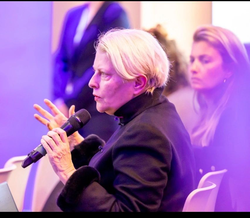
🌐follow Marie-Anne Frison-Roche sur LinkedIn
🌐subscribe to the Newsletter MAFR Regulation, Compliance, Law
🌐subscribe to the Video Newslette MAFR Surplomb
____
► Full Reference : M.-A. Frison-Roche, "Le juriste, requis et bien placé pour le futur" (The lawyer needed and well placed for the future), in Groupe Lamy Liaisons, Les Éclaireurs du Droit, Hôtel de l’Industrie, Place Saint Germain des Près, Paris, 11 March 2025, 16h.
____
This speech opens a series of 4 workshops on the following themes:
- The challenge of Trust
- The challenge of Risk
- The challenge of Transmission
- The challenge of leadership
____
🧮see the full programme of this manifestation (in French)
____
⬜see the slides basis made for this speech (which were not projected) (in French)
____
🎥 watch the short video made after the conference (in French)
____
► English Summary of this introductory conference: The 4 sessions will address the successive themes of trust, risk, transmission and leadership, which legal professionals are facing, particularly as a result of algorithms.
For an introductory analysis, it is possible to make a distinction inside the Future.
The future has a part of Stability: the jurist can contribute to this stability, i.e. the preservation of the past (I).
The future has an part of Predictability: the lawyer must increase this part in the present itself (II).
The future has a part of radical novelty (III): at this point, which may correspond to a precipice, if no one had imagined it, the lawyer can also be there. Until now, we think of lawyers more in the first 2 hypotheses, less in this one. Is it pertinent?
In each of these dimensions, the algorithmic system (AI) is presented as replacing or dominating the human.
In each of these 3 dimensions, Lawyers must be present, as they form a community that must remain united around the very idea of Law (algorithms do not conceive ideas, it is humans who transmit them to other humans, and the algorithmic system must remain a medium).
As far as the Stability of the future is concerned, the Lawyer can and must contribute to it, in particular through Transmission, because there is less of a blank page as algorithmic 'creation' is based on past data, and training, where the human being will be all the more central as machines have to be handled.
As far as the Predictability of the future is concerned, it is a question of assessing the Risks, whether specific or systemic, legal or non-legal, in order not to take them or on the contrary to take them. The more the Lawyer is involved in risk-taking, the more he or she will be in the right place, before and during the action.
As far as the Radically New future is concerned, it is not easy to qualify AI as such or not, but now the possible disappearance of the Rule of Law in the United States is one of them. All Lawyer are expected. Every lawyer must have two virtues (which the algorithm cannot not have): the virtue of Justice and the virtue of Courage. It is these virtues that we must pass on and share.
____
Current events have led me to devote the time available to me to focusing on a single perspective, the third, to say what is expected of Lawyers if we perceive something radically new in the near future, what everyone does.
Indeed, in the United States, on the one hand there is a head of state for whom the Law does not exist and who uses the power of regulation to express his absolute indifference to other states, companies and human beings, and on the other an entrepreneur who claims that he is going to become the master of algorithmic technology, a system over which he already wields great power.
Faced with this Radical Novelty, we expect the community of Lawyers, all lawyers, whatever their place, their technical mastery, their level, their nationality, to speak out and say No. As Kelsen, Cassin or Ginsberg did. Say No and help others to say No. To do this, Lawyers, as human beings who care about other human beings, must be aware of the twofold virtue expected of them: the virtue of commitment to Justice and the virtue of Courage.
________
June 12, 2024
Conferences
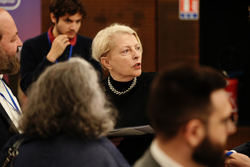
🌐follow Marie-Anne Frison-Roche on LinkedIn
🌐subscribe to the Newsletter MAFR Regulation, Compliance, Law
____
► Full Reference: M.-A. Frison-Roche, Participation in the panel "Une Gouvernance responsable : vers un mieux vivre ensemble ?" ("Responsible governance: towards a better way of living together"), in Grenelle du Droit 5. L'avenir de la filière juridique, Association française des juristes d'entreprise ("The future of the legal profession"), AFJE), Cercle Montesquieu and Paris Panthéon-Sorbonne University, Campus Port-Royal Université Paris 1 Panthéon-Sorbonne, 1 rue de la Glacière, 75013 Paris, June 12, 2024
____
🧮See the full programme of this event (in French)
____
🎥watch the interview made just after this round-table discussion (in French)
____
🪑🪑🪑🪑🪑 will also be taking part in this round-table discussion:
🕴️Yves Garagnon, Chairman of Dilitrust,
🕴️Pierrick Le Goff, lawyer, partner at De Gaulle Fleurance,
🕴️Sabine Lochmann, Chairman of Ascend,
🕴️Vincent Vigneau, President of the Commercial, Economic and Financial Chamber of the Cour de cassation (French Judicial Supreme Court)
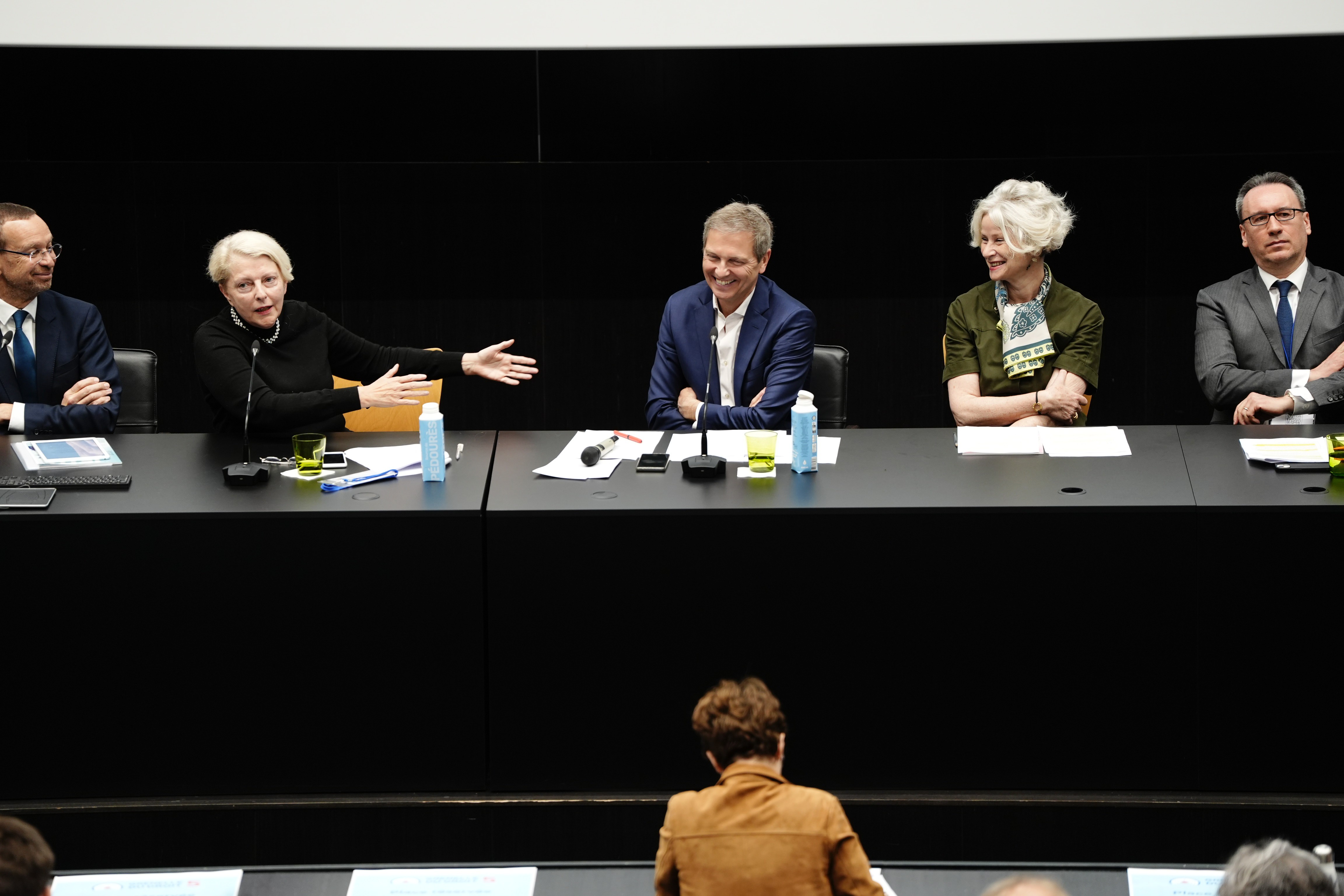
____
► English presentation of my intervention in this event's opening plenary round-table: In this plenary round table which opens the event, devoted to the theme of 'responsible corporate governance', for my interventions based on my work I will have the opportunity to address more particularly these different perspectives:
- How the new Compliance Law, which gives concrete expression to the responsibility of enterprises in a new relationship with States and with civil society, constitutes a 'legal revolution
- 💡for the record, mafr,📝Compliance Law, 2016 ; (ed.) 📘Compliance Monumental Goals, 2022
- how the judgment handed down by the Tribunal judiciaire de Paris (Paris First Instance Civil Court) on 28 February 2023 (Total Ouganda case) is remarkable and already constitutes a turning point in case law
- 💡for the record, mafr, 🎤audition as amica curiae, hearing of 26 October 2022 before the first instance Paris Court; (ed)📘Compliance Jurisdictionalisation, 2024
- how the relationship between States and enterprises is being renewed by this profound legal movement expressed by Compliance Law
- 💡for the record, mafr et M. Boissavy (ed.), 📕Compliance et droits de la défense - Enquêtes internes, CJIP, CRPC, mafr (dir.), 📘 Compliance Obligation, 2025
- how internal lawyers have a decisive and central role to play in this movement, particularly in the mechanism of vigilance / corporate sustainability due diligence, the "cutting edge" of Compliance Law,
- 💡for the record, mafr, 📝Contract of Compliance, Compliance stipulations, 2023 ; (ed.), 📘Compliance and Contract, 2025
- what is meant by the "Ex Ante responsibility" of enterprises, which does not necessarily entail their Ex Post liability, a distinction which lawyers are the guardians of
- 💡for the record, mafr, 📝La responsabilité Ex Ante, pilier du Droit de la Compliance ("Ex-Ante Responsability, Compliance Law Pillar"), 2021
- how European Compliance Law is profoundly humanist, an identity that distinguishes European Compliance from American Compliance and, above all, from Chinese Compliance.
- 💡for the record, mafr (ed.), 📕Pour une Europe de la Compliance ("For the Europe of the Compliance"), 2017
________
read the article about this round table written by Delphine Bauer in Actu-Juridique (in French)
Nov. 6, 2018
Interviews
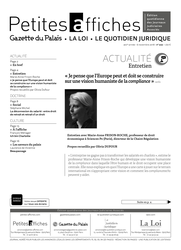
Référence complète : Frison-Roche M.-A., « Je pense que l'Europe peut et doit se construire sur une vision humaniste de la compliance », entretien avec Olivia Dufour, in Les Petites Affiches, n°222, novembre 2018, pp.4-7.
Cet entretien a été réalisé par Olivia Dufour, à la suite de deux conférences, la première réalisée au Collège de France sur la question de la convergence du Droit et de l'Economie dans la construction de l'Europe de la Compliance (4 octobre 2018), la seconde réalisée lors de la première journée des RegTechs de Paris (9 octobre 2018).
Résumé par le Journal :
« L’entreprise ne gagne pas à transformer les salariés en charlots », estime le professeur Marie-Anne Frison-Roche qui développe une vision humaniste de la compliance dans laquelle l’être humain et le droit occupent une place centrale. Elle nous explique en quoi l’Europe a une carte à jouer sur le terrain international en s’appropriant cette vision et comment les compliancetechs peuvent y aider.
April 21, 2017
Blog

Through the Open Culture website, it is possible to listen to Hayao Miyazaki who, in March 2017, claimed that video games whose drawings are made on Artificial Intelligence basis are "insults to life".
Read below the history, the words that the Master has held, his conception of what is creation and "truly human" work, which is echoed by the definitions given by Alain Supiot, who also reflected on what robots do.
This brings us back to the very notion of "creation" and creative work.
_____
Read below
April 8, 1966
Thesaurus : Doctrine
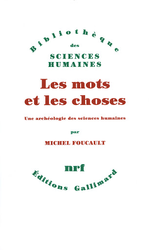
► Référence complète : Foucault, M., Les mots et les choses. Une archéologie des sciences humaines, collection des sciences humaines, Gallimard, 1966, 404 p.
____
► Texte de la 4ième de couverture : Les sciences humaines d'aujourd'hui sont plus que du domaine du savoir : déjà des pratiques, déjà des institutions. Michel Foucault analyse leur apparition, leurs liens réciproques et la philosophie qui les supporte. C'est tout récemment que l'«homme» a fait son apparition dans notre savoir. Erreur de croire qu'il était objet de curiosité depuis des millénaires : il est né d'une mutation de notre culture. Cette mutation, Michel Foucault l'étudie, à partir du XVIIe siècle, dans les trois domaines où le langage classique - qui s'identifiait au Discours - avait le privilège de pouvoir représenter l'ordre des choses : grammaire générale, analyse des richesses, histoire naturelle. Au début du XIXe siècle, une philologie se constitue, une biologie également, une économie politique. Les choses y obéissent aux lois de leur propre devenir et non plus à celles de la représentation. Le règne du Discours s'achève et, à la place qu'il laisse vide, l'«homme» apparaît - un homme qui parle, vit, travaille, et devient ainsi objet d'un savoir possible.
Il ne s'agit pas là d'une «histoire» des sciences humaines, mais d'une archéologie de ce qui nous est contemporain. Et d'une conscience critique : car le jour, prochain peut-être, où ces conditions changeront derechef, l'«homme» disparaîtra, libérant la possibilité d'une pensée nouvelle.".